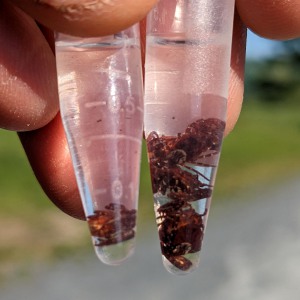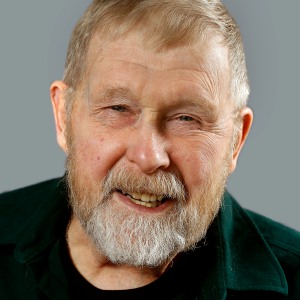Column: Getting an education after graduation
| Published: 05-08-2023 9:51 AM |
I recently drove on Route 10 from West Lebanon into Hanover on the way to the dentist. I went straight up Main Street through the tony parts of downtown Hanover toward Dartmouth College.
At the four-way stoplight, I watched the teeming Dartmouth students on campus, walking hand in hand and chatting with each other, often shouldering their backpacks. Some were jogging in shorts and Nikes on that warm spring day. And groups of proud parents were touring the campus with their offspring; some of the prospective students stared at their cellphones rather than take part in the tour. It didn’t look like they wanted to be Ivy League-bound.
I enjoyed watching all of them, a knee jerk of envy rising in me. They were what I had hoped to become in my wild high school fantasy: smart, competitive, studious and living on a beautiful college campus.
In my senior year of high school, I applied to only one four-year college, which, not so coincidentally, is where my best friend attended. Let the party begin!
I barely graduated from high school, my ranking far, far down the list, and a couple of teachers were glad to see me go. I can imagine an admissions team rifling through the applications, getting to mine and laughing while pointing to my class ranking, GPA and SAT scores:
“Look at this one, folks. Ha!”
When I got their thin rejection letter, my dad asked what I was going to do, and my only thought at that moment was how hot it was going to be in Vietnam after the army drafted me.
“Have you thought of the local community college? I can go down and meet with the president,” my dad said. He felt his pleading would help. This dear man, who hadn’t graduated from high school himself, had had to go into the Army during the Korean War.
Article continues after...
Yesterday's Most Read Articles
 Zantop daughter: ‘I wish James' family the best and hope that they are able to heal’
Zantop daughter: ‘I wish James' family the best and hope that they are able to heal’
 Crowd turns out to honor late Ascutney Fire Chief Darrin Spaulding
Crowd turns out to honor late Ascutney Fire Chief Darrin Spaulding
 A Life: For Kevin Jones ‘everything was geared toward helping other people succeed’
A Life: For Kevin Jones ‘everything was geared toward helping other people succeed’
 Pick a sport and Pete DePalo’s has probably officiated it over the past 40-plus years
Pick a sport and Pete DePalo’s has probably officiated it over the past 40-plus years
 Out & About: Vermont Center for Ecostudies continues Backyard Tick Project
Out & About: Vermont Center for Ecostudies continues Backyard Tick Project
He didn’t have to meet with the president. The community college accepted my application on its own demerits.
In my first semester freshman year, I felt like I was in thirteenth grade. The community college was in the same town as my high school; it held many of its evening classes in the same rooms I had in high school. I continued to work part time at the same job while living with my parents. I even had the same girlfriend.
But something happened starting in the second semester.
In one class, it excited a young professor that a new sitcom appeared on TV and we were to watch it and be ready to discuss the following week.
“I’ve seen nothing like it. It’s breaking new ground!” He had become captivated by “All in the Family.” As the weeks went by, we discussed topics of race, sex, and ethnicity. The opinions of pigheaded Archie Bunker were shocking, but it was the subjects of his taunts that we discussed.
I suddenly felt like more of an adult discussing these complex issues with other students.
In my Introduction to Literature class, the professor assigned us to read the book “Mrs. Bridge.”
“The first sentence reads ‘Her name is India — she could never get used to it,’ ” the professor said. “Why do you think the author used the name India? When you hear the word India, what do you first think of?”
I discovered metaphor, style, voice, character, story and meaning, sentence by sentence, paragraph by paragraph. My reading world opened wide.
In my physics class, one student, a long–haired protester of the Vietnam War, said something provocative about it “being an unlawful war.” A veteran sitting in the back of the class reacted angrily.
“I’m not taking a backseat to someone who was never there,” he yelled.
The professor mediated the conflict with a gentle but firm hand.
“I’m willing to give up lecture time to discuss this issue, but with facts, not emotion or profanity.”
The combatants shook hands at the end of class. It was eye-opening for me.
Not only did I learn, but my mind changed how I learned. I became a different person over those two years of college, processing information like an adult.
Thirteenth grade? Not hardly. After four semesters, I joined the Army, which had its own challenges, but I was better prepared for it. My education led to leadership roles in the military that would have been impossible without it.
And while still a little envious, I don’t take a back seat to Ivy League students. For that, I thank community colleges for giving people like me a second chance.
Mike Skinner is a writer who lives in Lebanon. Skinner was a medic in the U.S. Army, a hospital executive and a college educator. He is the author of “My Life as a Non-Valedictorian,” available through Amazon and Kindle.

 Editorial: Chris Sununu’s moral vacuum
Editorial: Chris Sununu’s moral vacuum A Yankee Notebook: An inevitable and terminal move
A Yankee Notebook: An inevitable and terminal move Editorial: Gambling tarnishes America’s sporting life
Editorial: Gambling tarnishes America’s sporting life By the Way: A white nationalist’s many mistruths
By the Way: A white nationalist’s many mistruths
